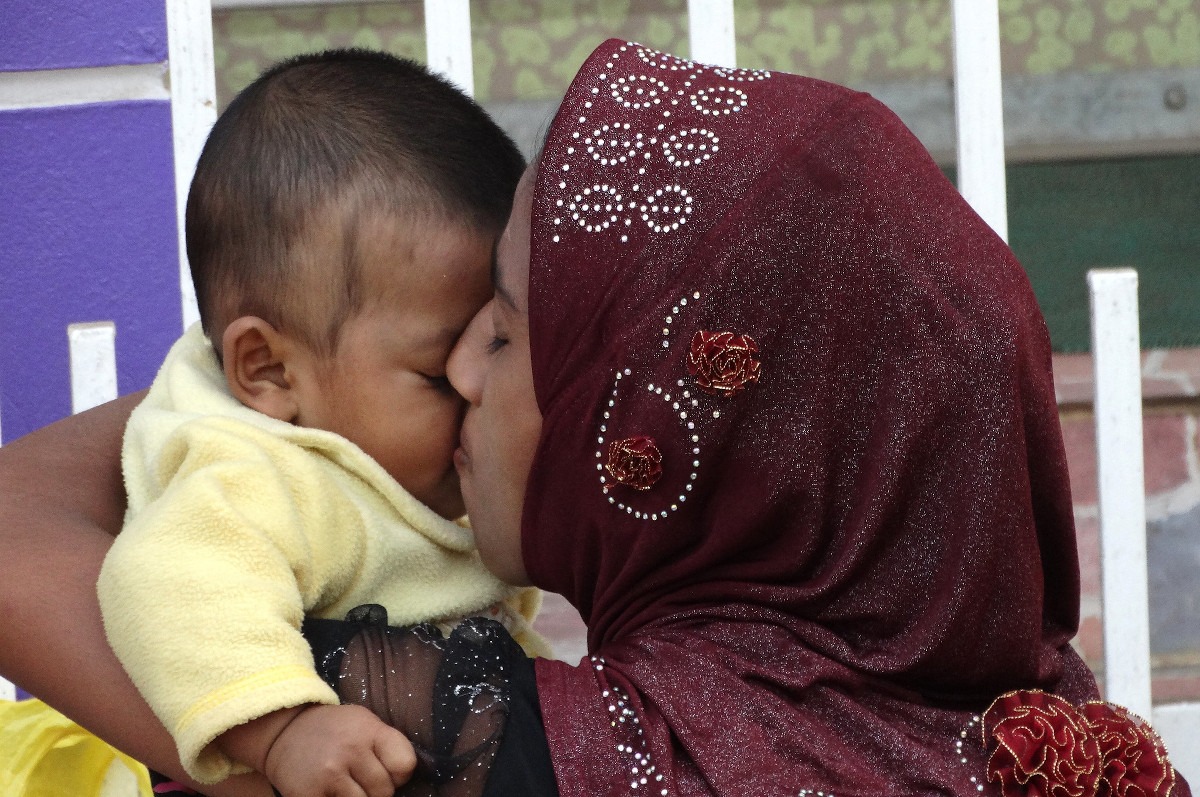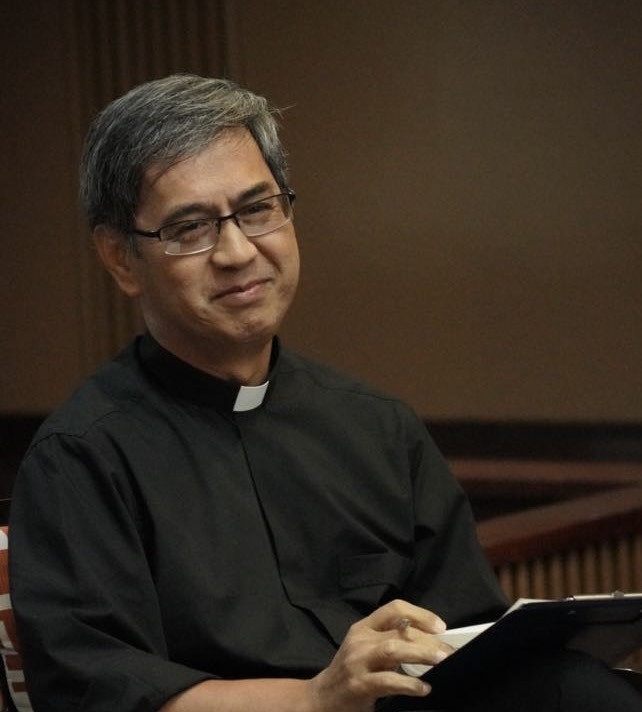
A Myanma mother kissing her child | Photo by Adam Jones
Grace: I beg for the grace of being able to enter into the joy and consolation of Jesus as he savours the victory of his risen life. (Spiritual Exercises of St Ignatius, 221)
In a forum on the situation in Myanmar last November, a local development worker showed a poignant picture of a mother walking behind her dead son’s body during a funeral procession. The mother was desperately looking for a final resting place for her son, who had been killed in a military bombing of their village. The relentless bombings forced them from village to village, further burdened by the refusal of some villages to accept the burial of someone outside their community based on custom. Thankfully, one village finally accepted her son’s burial.
We were deeply shocked by the situation. The local aid worker went on to narrate that for development workers like herself, the situation was getting riskier. Military harassment and threats were escalating, forcing United Nations staff to leave, fearing for their lives. When asked why she chose to stay despite the dangers, her voice turned somber. “If I leave, she said, “who will take care of my people?” It is her faith, she offered, that gives her courage and hope amid all the dangers and seeming hopelessness of the situation.
These stories from Myanmar and other areas of conflict and war in Ukraine, Russia, Gaza, Israel, Sudan, and Haiti continue to haunt those of us who long to see peace and human progress in our deeply troubled world. We long to make a difference in addressing the longstanding and intractable problems of poverty and deprivation, forced migration, climate change, the impunity of dictators, human trafficking, and many more. For people on the margins, like the Myanma mother and development workers, where might their hope lie? For the young people of Myanmar who are now being compulsorily conscripted into the military to fight their people, where can they find hope? There are no easy answers.
Pope Francis, in his opening address to the Jesuits of the General Congregation 36, told them to ask persistently for consolation. He says,
“In the Exercises, Ignatius asks his companions to contemplate “the task of consolation” as something specific to the Resurrected Christ. (Spiritual Exercises, 224) It is the specific task of the Society to console the Christian faithful and to help them in their discernment so that the enemy of human nature does not distract us from joy: the joy of evangelizing, the joy of the family, the joy of the Church, the joy of creation… Let us never be robbed of that joy, neither through discouragement when faced with the great measure of evil in the world and misunderstandings among those who intend to do good, nor let it be replaced with vain joys that are easily bought and sold in any shop.”
As we face our world badly marred by the dark forces of sin, hatred, and division, we are invited at this time of Easter to beg for the grace to enter into the joy and consolation of the Risen Jesus. We are reminded that it is not a joy that we can obtain through sheer human will or effort. It is a pure gift that can only come when we allow God to make real his Son’s passion and death in our lives through walking with and committing ourselves to our suffering sisters and brothers on the margins. Only by being moved with compassion and remaining faithful to our mission can we also experience Jesus’ triumph over sin and death and enter into his joy and consolation. A blessed Easter to all!
+AMDG+







